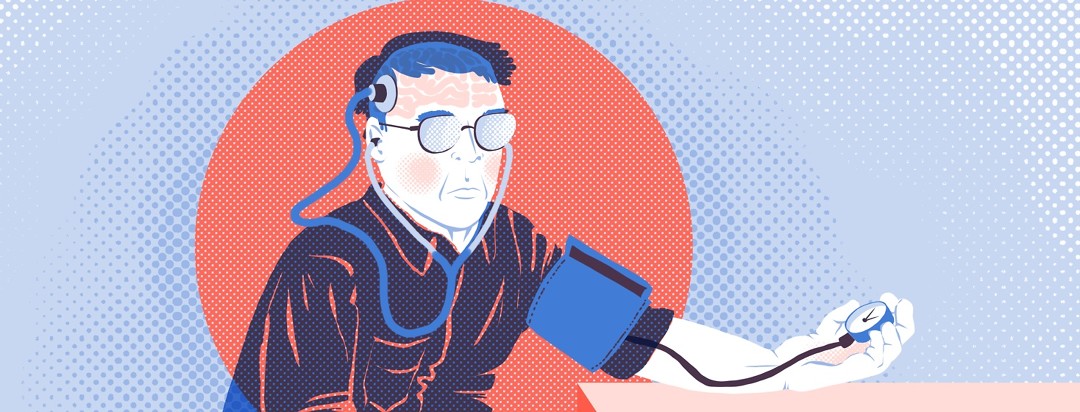Reducing Blood Pressure to Prevent Alzheimer’s: Results From a Recent Study
Blood pressure and the risk of developing Alzheimer's disease or other types of dementia have been linked together before. Recently there have been new research breakthroughs that may open up treatment possibilities for those with Alzheimer's disease, as well as those at risk of developing it.
While healthy lifestyle decisions like eating a heart-healthy diet, losing excess weight, monitoring blood pressure, and exercising are all things that can help lower blood pressure, sometimes medication to lower high blood pressure, called anti-hypertensive medication, is necessary. In addition to lowering blood pressure, these drugs may have the added benefit of reducing the risk of Alzheimer's disease.
The effect of cardiac health
What does high blood pressure have to do with the brain and Alzheimer's disease? More than you might think.
Veins go throughout our bodies, and if a person has untreated or poorly managed high blood pressure, poor blood flow can occur and have negative effects on various bodily systems.
When a person has high blood pressure, also called hypertension, this can cause damage to tiny blood vessels in the brain and affect areas that are responsible for thinking and memory.1
In 2013, researchers found that older individuals with high blood pressure were more likely to have biomarkers for Alzheimer's disease in their spinal fluid. Another study found that the more fluctuation with blood pressure over a span of time, the higher the risk of dementia.1
Blood pressure medications
Johns Hopkins researchers found that taking any kind of anti-hypertensive medication reduced the risk of developing Alzheimer's by approximately one-third.1
If an individual didn’t have Alzheimer's disease and took blood pressure drugs, they were less likely to develop Alzheimer's disease. If a person had Alzheimer's disease and started certain blood pressure medications, the Alzheimer's was less likely to progress as rapidly.1
The association between blood pressure meds and Alzheimer's
Researchers at Brigham Young University found an association between high blood pressure and a decrease in Alzheimer's disease, which sounds counterintuitive.
They hypothesize that ACE, or angiotensin-converting enzyme, a naturally occurring protein in the body that regulates fluids, may cause an immune response in the brain and increase brain power, as well as decrease beta-amyloid proteins associated with Alzheimer's.2
However, despite these findings, the researchers are explicit in stating that it is most likely not the high blood pressure that is protective against Alzheimer's, but the blood pressure medication the patients take that provides a positive effect.2
SPRINT and SPRINT MIND
The Systolic Blood Pressure Intervention Trial (SPRINT) Memory and Cognition in Decreased Hypertension (SPRINT MIND) results found an intervention that significantly reduced the occurrence of mild cognitive impairment (MCI), which is often a prelude to dementia.3
SPRINT MIND looked at intensive blood pressure control and whether it affected mild cognitive impairment over 5 years. While the standard target of blood pressure control has been that of less than 140 mmHg, this study had a target of 120 mmHg or less.3
The study ended earlier than expected, the results showed that intensive treatment of high blood pressure reduced the risk of MCI and the combined risk of MCI and dementia.
Blood pressure and Alzheimer's
Anti-hypertensive drugs may not be appropriate for everyone. If you're interested to see whether they're right for you or a loved one, talk with the doctor about it. The doctor will be able to take into account personal medical history, family history, and any current health conditions or issues that might impact the possibility of taking this kind of medication.
More research needs to be done, and at the present time, there is no proven intervention that prevents dementia – but these studies are promising indicators that such interventions might be on the horizon.
Have you changed any of your behaviors to improve your heart health? What do you do to keep your heart or your loved one's heart health?
Community Poll
Have you had difficulty keeping your loved one hydrated?

Join the conversation